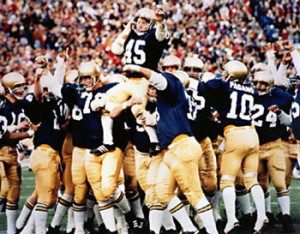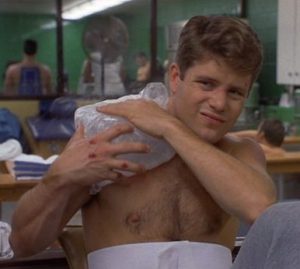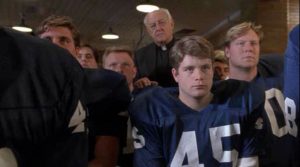Have you ever really thought about where our societal norms and rules come from? To get even deeper, how our personal identities form? I never did either before this year, but it’s definitely something worth thinking about. When you look to the past and compare it to the present, you’ll notice that the general concepts of society very minimally change. So, what mediums are used in order to make sure it stays the same through all of the generations? Althusser, a French philosopher, seems to have the answer to all of these questions.
To understand what I’m going to talk about you have to understand Althusser’s philosophy. To put it simply, he believes that we are all governed by an ideology. An ideology is the tool by which other things reproduce, and it controls us and not the other way around. Ideologies support our societal relationships by reinforcing them through movies, TV shows, books, songs, and stories. Most people are not aware that this is what’s happening because it’s all happening subconsciously. It’s so engrained in our culture that we don’t notice it unless we take a deep look at what we’re watching/reading (ENG 117). What we’ll be doing in this essay is figuring out if the movie Rudy has an ideology, and, if so, what the ideology is.
For those of you who have never seen Rudy, it’s a truly touching movie about a football player who has big dreams of playing football for Notre Dame. No one really believes in him, including his family, but he works abnormally hard to get into Notre Dame and eventually play for the team. The movie ends with Rudy making a tackle in the final play of the game for Notre Dame. In this scene, he gets carried off the field on the shoulders of his teammates with his dad in the stands crying tears of joy. 
At first look, you may think that moral of the story is to work hard and all of your dreams will come true. But when you look past the heart-warming scene of Rudy finally being able to step on the field for Notre Dame, and start to think like Althusser, there are a few underlying messages that are not as happy doo-diddy as the movie makes you feel.
It’s pretty apparent that in the movie, Rudy represents a kid from a low-income household who was only supposed to be a factory worker and nothing more. The other Notre Dame football players, on the other hand, weren’t necessarily portrayed as wealthy, but it is evident that they were better off in all aspects of life than Rudy. There’s a scene in the movie where Rudy tackles the quarterback during practice and the quarterback starts yelling at Rudy telling him how he’s only a practice player and how he’s going to hurt someone if he keeps practicing like that. The coach then grabs the kid by the helmet and tells him that if he had half the heart that Rudy has then maybe he would be an All-American and not a sorry excuse for a football player (Rudy). There’s no hiding the fact that Rudy is the most hardworking player on the team, but even so he only gets to step on the field at the very end of the season for a single play. Our first instinct at the end of the movie is to be happy for Rudy that he finally gets to accomplish his dream of running through the tunnel for Notre Dame, but think about it, he doesn’t nearly get as much out of it as he put in. So, what’s the underlying ideology of this movie that’s being put into our brains?
The ideology of this movie is that no matter how hard lower class citizens work, they’re never going to be good as the upper class citizens who don’t nearly put in as much work. There’s always going to be a divide, and the poor are always going to be working for the rich. At one point in the movie Rudy is asked why he’s killing himself at practice when he doesn’t get anything out of it, and he says, “if I cool it out there, then I won’t be helping you guys win next week’s game” (Rudy). This quote pretty much sums it all up: lower class citizens are there to help the rich. As sad as it is, this has always been the case throughout history.

Another ideology in this movie reinforces the role of the church. When Rudy has no idea where to go or what to do when he finally makes it to Notre Dame, all signs point him towards the priest. Father Cavanaugh is the one who gave him his only chance of getting into Notre Dame. He enrolled Rudy into the local college, and that’s where Rudy got good enough grades to get into Notre Dame. There is no one as influential to Rudy, besides maybe the groundskeeper, in this movie. Also, whenever Rudy felt low-spirited and lost, the church is where he went. This movie puts into our brain that the church is our savior. Another aspect to take into consideration is that Notre Dame is a highly religious school and all Rudy wanted to do was get into this school. In this movie, the school represented Christianity in general. If this is true, then this movie puts into our mind that in order to be truly happy, we have to be “accepted” by God.

Some of these statements may seem absurd to you. That’s how I felt when my English class figured out the ideology of the Terminator 3, and Titanic. Who would’ve ever guessed that the Terminator supports male dominance and rape culture, or that the Titanic reinforces the class structure? I didn’t before I thought about the ideology of these movies, and now these claims seem very evident to me. This is exactly what Althusser, and other philosophers, were talking about when they said we don’t know that we’re being controlled by these ideologies. Unless we try to find the ideology, we don’t notice it, and, therefore, it unknowingly becomes a part of our daily thoughts. This is dangerous because our daily thoughts makeup our personal identity. And since these movies are being watched by thousands of people, we all start to have the same daily thoughts and so it naturally becomes a part of our society. The next time you watch a movie, try to figure out what the ideology is; you might discover something very few people have.
Bibilography:
Rudy. Dir. David Anspaugh. 1993. Film.